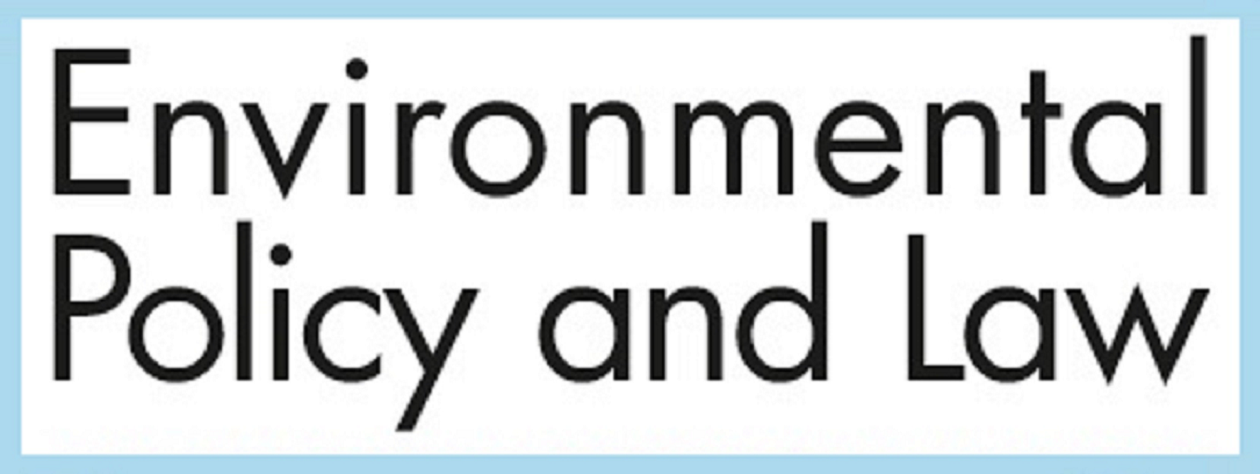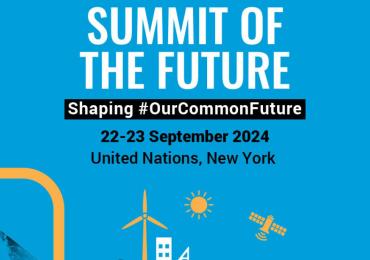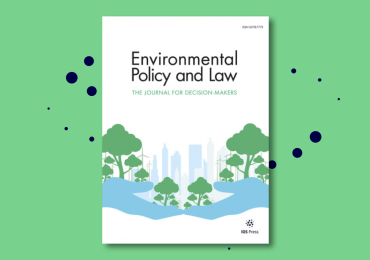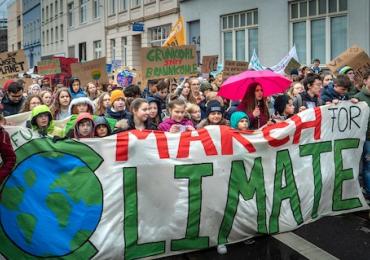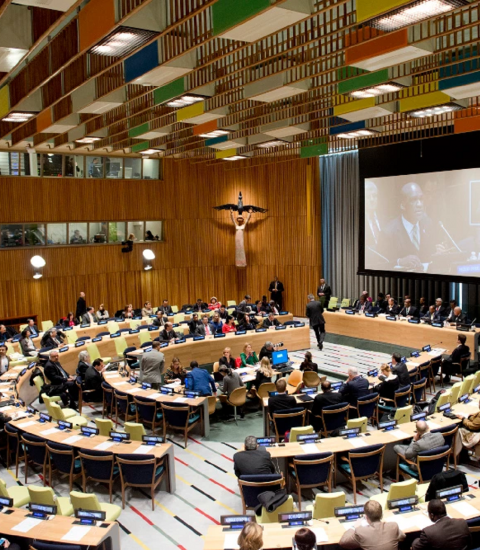
[By Bharat Desai, Jawaharlal Nehru University]
New Delhi, India – This article is based on my ideational proposal that was first published in the recent issue of Environmental Policy and Law (EPL) (link) and the new book Envisioning Our Environmental Future: Stockholm+50 and Beyond (link). This proposal holds significance in view of a flurry of initiatives taken by the United Nations Secretary-General (UNSG) António Guterres.
In April 2022, the UNSG formed the High-Level Advisory Board (HLAB) for Effective Multilateralism as a sequel to his 2021 report Our Common Agenda, as well as the statement to the 75th session of the UN General Assembly (September 2021). It is a prelude to the UNSG’s proposals for the Special Envoy on the Future Generations and the Summit of the Future 2024 (vide UNGA modalities resolution of 76/307 of 08 September 2022).
The UNSG has suggested that the UN Trusteeship Council (UNTC) be repurposed “to enhance the governance of the global commons…invite States to consider making the Council available as a multi-stakeholder body to tackle emerging challenges and, especially, to serve as a deliberative forum to act on behalf of succeeding generations.” The suggestion of the UNSG was endorsed in another report Our Common Agenda and the Road to 2023 in order to “improve governance of the global commons, including the high seas, Antarctica, the atmosphere, and outer space.”
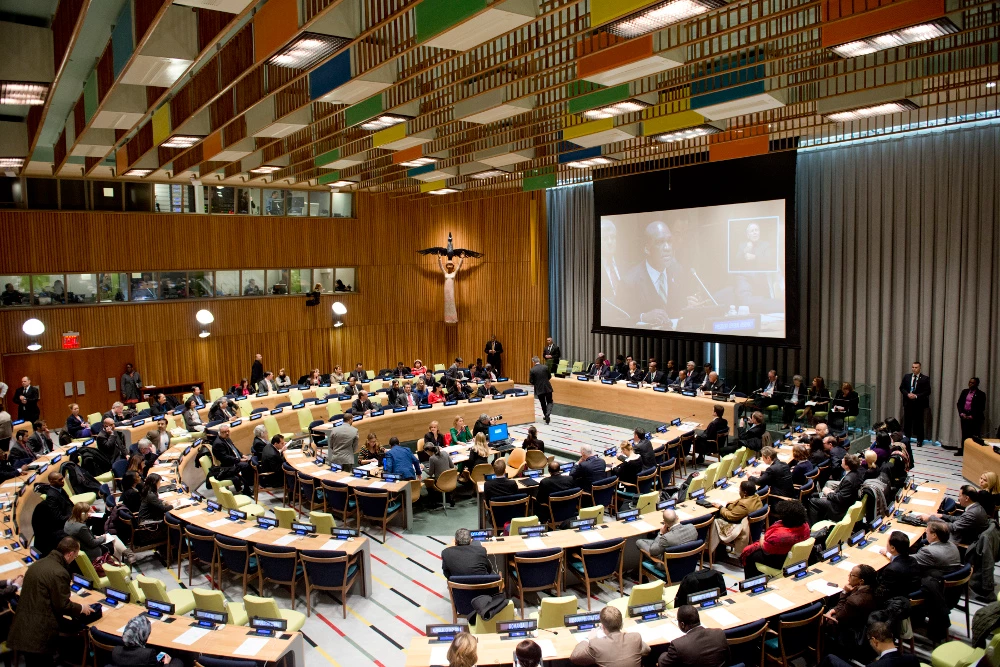
The UNTC idea on the global radar
The UNSG’s suggestion reflects the inherent powers of his office as the chief executive officer of the 193-member political organization of the sovereign states. It also shows that change is the law of life. The time seems to have finally come for the UNTC to “arise, awake and listen to the boons” (Katha Upanishad, 1.3.14 chapter) after a hiatus of 28 years. The UNSG report has provided a fresh impetus to this author’s long standing scholarly idea (2022; 2021; 2014; 2000) for revival and repurpose of the UNTC, originally mooted in a special talk of 15 January 1999 at the World Bank in Washington DC. The relevance of the idea also came to the fore in the author’s interaction at the Expert Consultation of 22 June 2022 with members of the UN-HLAB who sought concrete ideas for the future. It took place quick on the heels of the Stockholm+50 Conference (2–3 June 2022). How can the UNTC be repurposed with a new mandate in the new context?
In the wake of this author’s one-one-one meeting with the Prime Minister Narendra Modi, a detailed proposal contained in the book International Environmental Governance (Boston: Martinus Nijhoff, 2014), released at the UN General Assembly Building (UNHQ, New York; 12 December 2014), was provided both to the Prime Minister Office (PMO) as well as the External Affairs Minister. In a letter of 12 March 2019 to the author, the UNSG Antonio Guterres termed idea of the UNTC revival as “common concern” and referred to “different initiatives related to the protection of the environment and the conservation and sustainable use of its resources.” Reflecting on the growing convergence of thoughts on the UNTC revival, in a letter dated 28 January 2019 to the author, the President of the 73rd UN General Assembly, Maria Fernanda Espinosa Garces, shared her sentiment that “preserving and caring for our planet and protecting the environment are among the most pressing challenges we face globally”. She further added: “As you rightly point out, a new mandate for the UN Trusteeship Council would necessitate consensus among the UN membership and an amendment to the Charter in accordance with its article 108.”
Responses from some of the Heads of Government have also been promising. On behalf of the Russian President Vladimir Putin, Ministry of Foreign Affairs’ letter of 31 July 2019 said: “We view it as a unique approach to tackle environmental challenges and we agree with you on its potential…We will surely take into consideration your proposal in our future deliberations.” Scott Morrison, Prime Minister of Australia, in a letter of 6 September 2019, reposed trust in the UN processes and observed: “Australia strongly supports the United Nations (UN) reforms…that UN oversight processes can work effectively, and that the UNSG takes his responsibilities seriously.” Going beyond diplomatese, Winston Peters, Deputy PM of New Zealand, on behalf of Prime Minister Jacinda Ardern, on 12 September 2019 specially compared the idea of “trusteeship” with the local Māori tradition and said: “The value of kaitiakitanga (guardianship and conservation) resonates strongly with the New Zealand Government, and aligns with the understanding that we have been entrusted with our environment, and have a duty of care for it.”
It is in the abovementioned global context as well as following a communication from the PMO, the former SIS colleagues Ajay Patnaik (Dean) and Chintamani Mahapatra (Rector) quickly moved to specially organize this author’s SIS Public Talk (10 April 2019) (PDF): “On the Revival of the UN Trusteeship Council with a New Mandate for the Environment and the Global Commons.”
In sacred trust
As the things stand, the UNTC still remains one of the six “principal organs” of the UN (Article 7). It has remained dormant since suspending operations on 10 November 1994 after independence of the last trust territory of Palau. On the basis of the UNTC resolution 2199 (LXI) of 25 May 1994, the UNSC adopted resolution S/RES/956 (1994) to this effect. The tasks of the UNTC were to supervise the dependent territories. The concept of sacred trust remained the cardinal principle of the UNTC for the exercise of hand-holding and care for the entrusted 11 trust territories (during 1945–1994).
As per Article 86 (Chapter XIII) of the UN Charter, the UNTC was to administer the trust territories. The TC comprised the five permanent members (Article 23, UN Charter) of the Security Council. As a corollary, under the authority of the UNGA, the UNTC was to “consider reports submitted by the administering authority” (Article 87, UN Charter) and “make an annual report to the General Assembly” (Article 88, UN Charter).
In view of completion of its mandated task, the UNTC amended its rules of procedure by a resolution on 25 May 1994, to drop the obligation to meet annually. It has agreed to meet as occasion required. It could be by its decision or the decision of its President, or at the request of a majority of its members or the General Assembly or the Security Council. As a reflection of continuity, the 73nd session (7 December 2021) of the UNTC elected Nathalie Broadhurst Estival of France as its President and James Kariuki of the United Kingdom as its Vice-President. The Trusteeship Council is expected to meet again in December 2023.
As the UN practice shows, any proposal for an amendment of the Charter is generally treated cautiously. There has been much effort to push for the expansion of the UNSC’s membership and to review the veto power itself. That has not yet materialized. It is feared that it would open up a Pandora’s Box for review of the whole Charter as many member states strongly feel that the UNSC is not representative and the UN Charter does not reflect the realities of the 21st century world. Any such UN restructuring would need to be reflective of the aspirations of the ‘peoples’ in whose name the Charter came into existence on 26 June 1945. If there is a consensus on the utility of the UNTC in this new context, an appropriate mandate would need to constitute “trusteeship of the planet.”
It has also been identified that the governance of the global commons forms a significant part of the larger architecture of International Environmental Governance. In view of the global environmental challenges, it is now high time to entrust the UNTC with the overall supervision of the global commons and the global environmental protection. How can the UNTC be repurposed in with a new mandate in the new context?
A new mandate in the new context
In view of the global environmental challenges in the Anthropocene epoch, the revived and repurposed UN Trusteeship Council (UNTC) needs to be entrusted with the task of the overall supervision of global environmental protection (especially universal multilateral environmental agreements, such as UNFCCC; UNCCD; CBD) as well as the global commons (the Area under UNCLOS; Atmosphere – climate, ozone; Antarctica; outer space). In a futuristic scenario, wherein consensus emerges among the states to repurpose the UNTC with a new mandate, it will necessitate an amendment under Article 108 of the UN Charter. Any possibility of amendment of the UN Charter is quite plausible and a necessity. An amendment would require approval by a two-thirds of the UNGA members as well as concurrence of all five permanent members of the UNSC. A review conference (Article 109, UN Charter) (PDF) can be convened theoretically by a two-thirds vote in the UNGA and a vote of any nine members in the UNSC. However, any alteration of the Charter proposed at a review conference cannot take effect without the consent of all five of the permanent members of the UNSC.
Broad contours of the repurpose
In a repurposed UNTC, the composition (Article 86, UN Charter), could range from 15 members, at the minimum, to 54, at the maximum. The UNGA would elect members for a period of three years, with one-third of the members retiring every three years. The allocation of seats would be on the basis of an equitable geographical distribution. Unlike the earlier incarnation of the UNTC, no trust areas would be assigned to it. No member of the revived TC would be assigned any special role or conferred with any veto or special or privileged voting rights. The function of the TC would be democratic on the basis of the one-state, one-vote principle (same as the UNGA; Article 18, UN Charter).
If retained in its present form, UN Environment (UNEP), or its possible future upgrade into a UN ‘specialized agency’ that may be called UN Environment Protection Organization (UNEPO), would have to work out a special ‘relationship agreement’ with the ECOSOC (Chapter X, UN Charter). If this were to happen, UNEPO, as a specialized agency (Article 57 and 63, UN Charter) would report directly to the UNTC and, through it, to the UNGA. The UNTC would of course be able to avail assistance of the ECOSOC and other UN specialized agencies in regard to matters with which they are respectively concerned (Article 91, UN Charter).
The new mandate for the revived UNTC could be repurposed as follows:
- Article 87: The General Assembly and, under its authority, the Trusteeship Council, in carrying out their functions, may:
a. Examine progress in reversing global environmental deterioration in consultation with the UN Environment or (its future upgrade into a UN specialized agency) United Nations Environment Protection Organization (UNEPO; or known by any other nomenclature);b. Consider reports submitted by the UN Environment or UNEPO as well as relevant multilateral environmental agreements (preferably climate change, biological diversity, desertification, which have universal membership and were crystallized through the UNGA mandated law-making processes) duly sanctioned by their respective Conferences of Parties on the basis of relationship agreements with the Trusteeship Council;
c. Review the status of each of the designated global commons keeping in view the overall interest of all the inhabitants of the planet earth, in consultation with decision-making organs of their respective regulatory regimes through relationship agreements and provide a mandate for further law-making processes as deemed most appropriate;
d. Adopt appropriate decisions and other actions, as deemed proper, from time to time, consistent with the respective international agreements, arrangements and mechanisms.
- Article 88: The Trusteeship Council shall prepare the form and modalities for submission of periodic reports by each of the regulatory regime of multilateral environment agreement as well as the global commons areas placed under its supervision. The decision-making organs of the respective regimes shall provide an annual report to the Trusteeship Council and, through it, to the General Assembly.
Trusteeship of the planet
The abovementioned mandate would entrust and enable the UNTC to undertake a genuine trusteeship, with a responsibility of the planetary trust for the present and the future generations. Its duty will shift from territory to the rights and welfare of the ‘peoples’ (opening line of preamble to the UN Charter). It will essentially serve as a guardian of the global ‘common concerns’ as well as of the ‘common heritage of mankind.’ Thus, its primary mandate would constitute the global environment and the global commons. In essence, the UNTC would serve as the principal instrumentality for the “trusteeship of the planet.”
The evolution of the idea of a trust in the global domain underscores that there are places, territories, and areas that require special and careful nurturing. Hence, the practice has been to place them under the tutelage of a sovereign state or an international institution that can supervise their well-being. At this juncture, the global supervision for the environmental protection and the global commons assumes significance since they hold special value for the present and future generations on the planet Earth.
In this context the call given by the Indian Prime Minister Narendra Modi (September 2020), in his address at the 75th anniversary virtual meet of the UNGA, became relevant for the comprehensive UN reforms since “we cannot fight today’s challenges with outdated structures.” In a similar vein, an explicit reference was made by the Prime Minister Modi for “trusteeship of the planet” in an address to the G-20 Riyadh virtual summit (November 2020). It provides the future pathway in this respect. As a logical corollary, a repurposed UNTC, with a new mandate for the environment and the global commons, would serve as the principal instrumentality for the said trusteeship of the planet. Who shall get the credit (यश) for donning the mantle for this futuristic change of the UNTC? The answer lies in the womb of future (Time).
